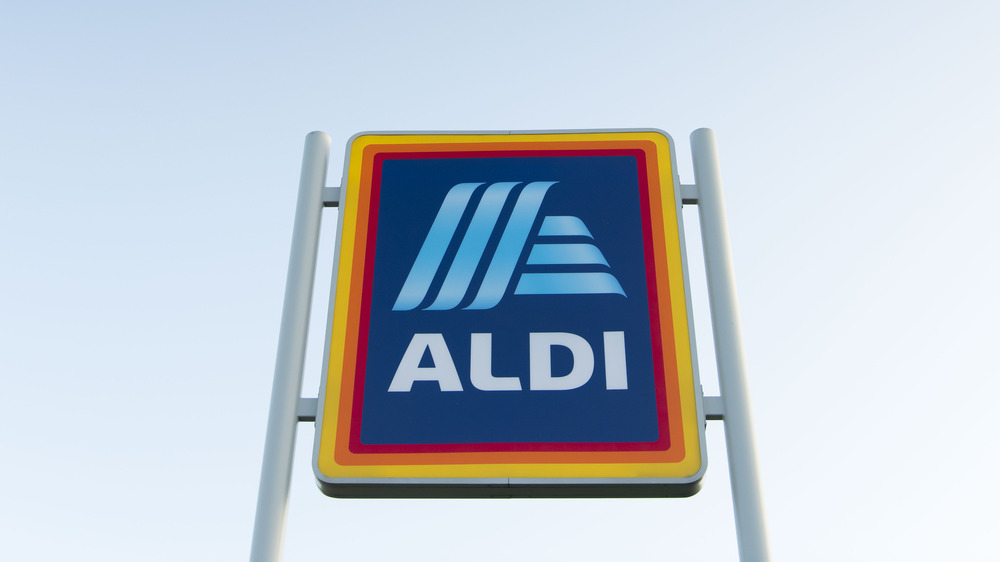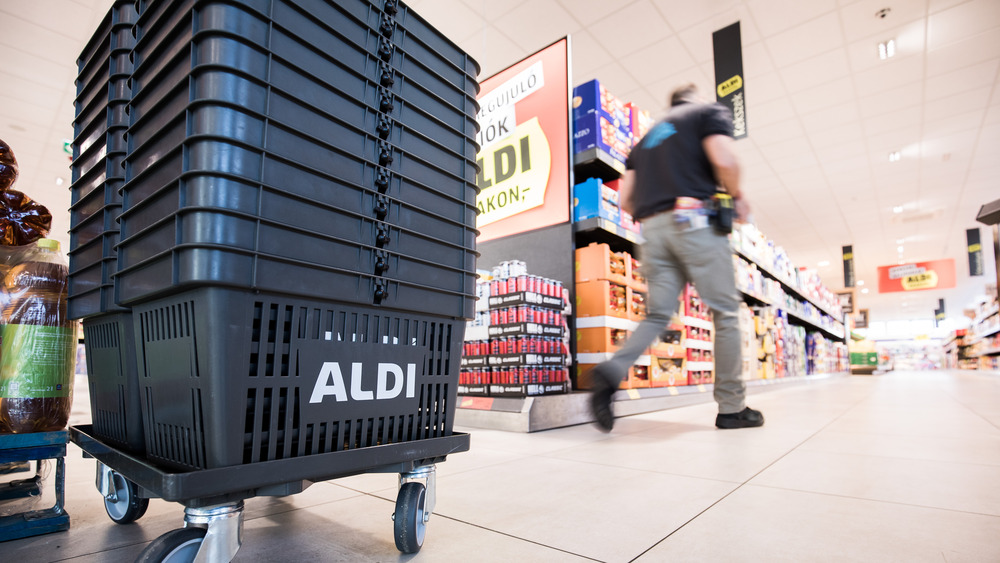How WWII-Era Scarcity Led To Aldi's Success
World War II had many profound impacts on citizens' daily lives, one of the biggest being limited supplies and resources. Everyday food items and household staples were diverted to the war effort, trade was interrupted, and many manufacturers' employees went off to fight (via National Park Service). The situation was even more dire in areas directly affected by the war, like Essen, Germany. Essen is where the Albrecht brothers, founders of international supermarket chain Aldi, were born and would take over their family's small grocery store, per The New York Times.
Essen was often targeted by Allied bombings, as it was the location of one of the Nazis' steel and weapon suppliers (via DW). Despite that, the Albrecht family's corner store miraculously survived. Both brothers, Karl and Theodor, were drafted to fight, says The New York Times, and luckily, both made it home. Even after the war, an extreme shortage of basic necessities continued; The Guardian notes most people could only afford the very essentials. This included the Albrechts: not only could their customers only afford minimal groceries, but the grocers could only afford to stock a minimal amount of food items.
The Albrechts saw the positive of this, per The Guardian, which is that it was a successful business model. Cut the frills and offer the basics, so you can keep prices low. Thus, the Aldi method was born.
How the bare necessities led to a global empire
According to CNBC, when the Albrecht brothers took over the family store, they didn't stop their cost-cutting approach at a tightly curated inventory, which they would constantly fine tune by nixing poor-selling items. They also went sans any store décor or advertising — they didn't need it. Per CNBC, the Albrechts were able to keep prices so low compared to other grocers that, especially in Germany's poor post-war economy, shoppers flocked to the brothers' store.
Building on wartime and post-war minimalism created a path to success even as times improved. CNBC reports that the brothers had opened four new stores around Essen by 1948, and had established a chain by the 1950's. As they added to their empire and expanded internationally, the Albrechts kept items limited to accessible, well-selling basics. They saved more costs when they switched from the older method of customers asking clerks for items to letting shoppers help themselves from the shelves, which led to even letting customers bag their own groceries like they do today. CNBC reveals that in the chain's earlier days, the Albrechts wouldn't even foot the bill for phones; managers had to use nearby payphones.
While the Aldi we know today has grown to sell things like meat and produce, the business sticks to their core beliefs. All of Aldi's frugality has helped shoppers be frugal, too, with Clark.com reporting 41 percent savings compared to other supermarkets.

